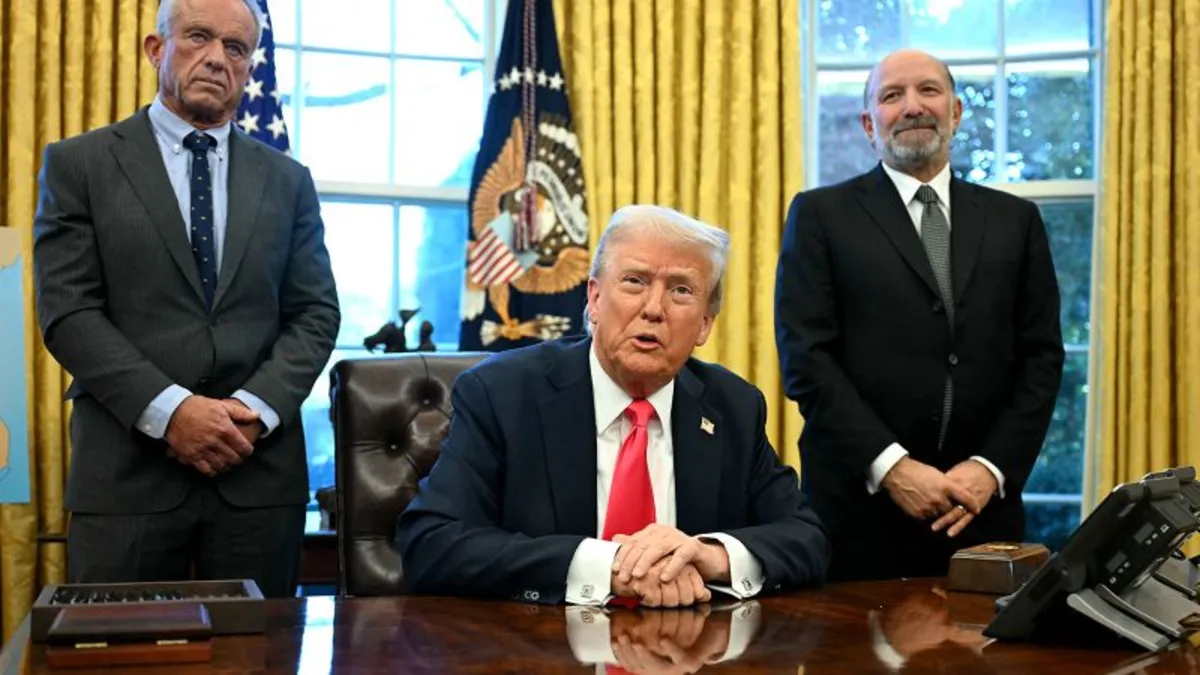
On Tuesday, President Donald Trump announced a new initiative that would allow wealthy foreigners to purchase a "gold card", granting them the right to live and work in the United States. This ambitious plan, revealed from the Oval Office, outlines that the card will come with a hefty price tag of $5 million and will offer a pathway to U.S. citizenship.
The president explained that the gold card would provide privileges akin to those of a green card, with the added bonus of a citizenship route. "We're going to be selling a gold card," Trump stated. "This is a gold card, and we're putting a price on it of about $5 million. Wealthy people will be able to come into our country by purchasing this card."
According to Trump, the sale of these cards will commence in approximately two weeks, with the potential to sell millions of them. When questioned about the possibility of selling to Russian oligarchs, Trump replied affirmatively, noting he knew some who were "very nice people."
Commerce Secretary Howard Lutnick, present alongside Trump, stated that the gold card would replace the current EB-5 immigrant investor visa program. This program allows foreign investors to contribute to U.S. projects that create jobs and thereafter apply for visas. "They’ll have to go through vetting, of course," Lutnick added, emphasizing the importance of ensuring applicants are "wonderful world-class global citizens."
Initially created by Congress in 1992, the EB-5 program grants green cards to immigrants investing a minimum of $1,050,000, or $800,000 in targeted employment areas aimed at economically distressed zones. This investment is meant to create jobs for American workers, as per the United States Citizenship and Immigration Services website.
Businesses associated with Trump and his family have utilized this program for significant property developments. Nevertheless, the program has faced bipartisan criticism during Trump's first term, with lawmakers arguing that it had strayed from its original goals and required reform.
In 2019, the Trump administration attempted to raise the minimum investment amount for targeted economic areas to $900,000, and $1.8 million for other locations. However, a federal judge struck down these changes in 2021, due to the acting Homeland Security secretary not being properly appointed. The program was last renewed in 2022 under the Biden administration, with the minimum investment requirements adjusted to their current levels.